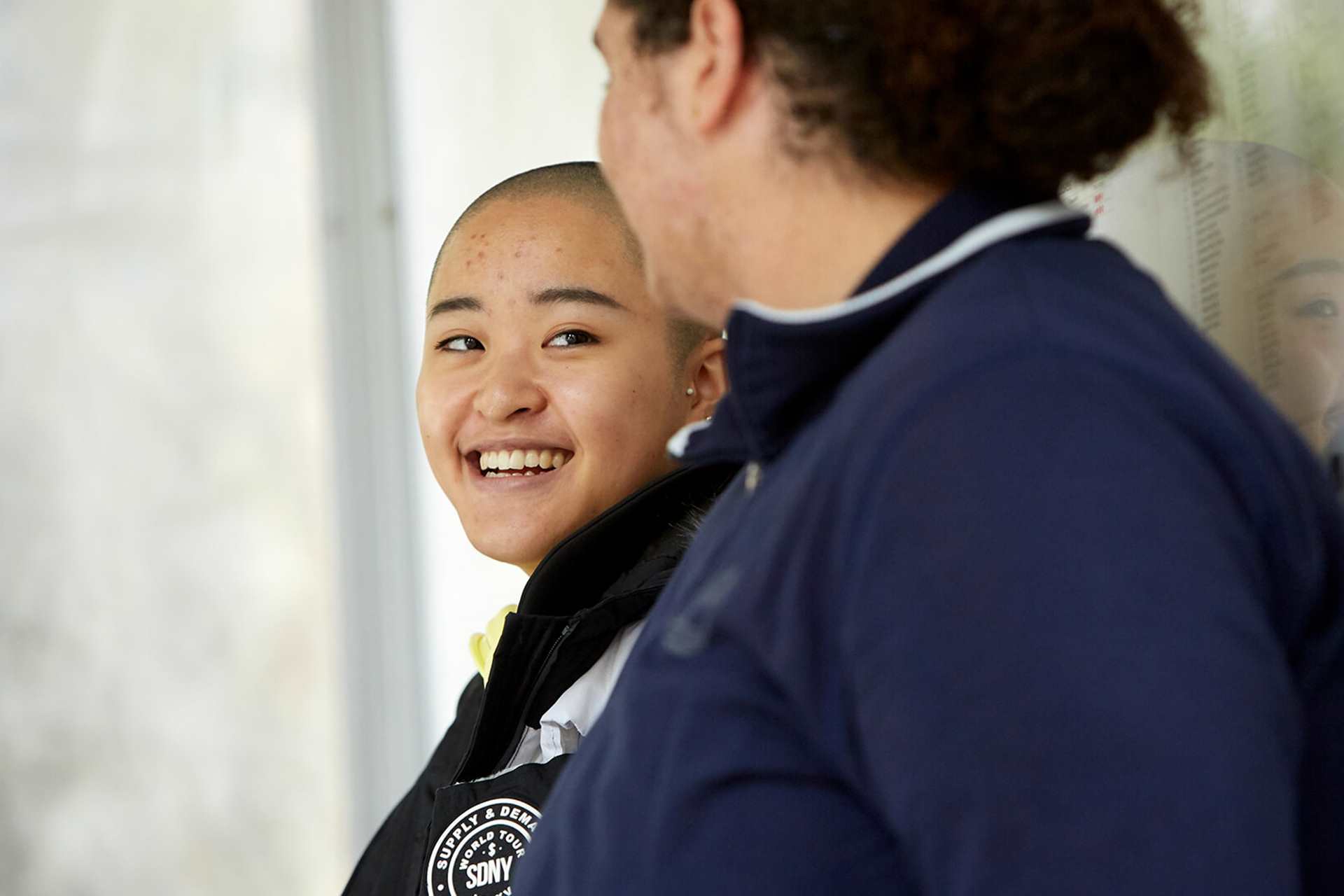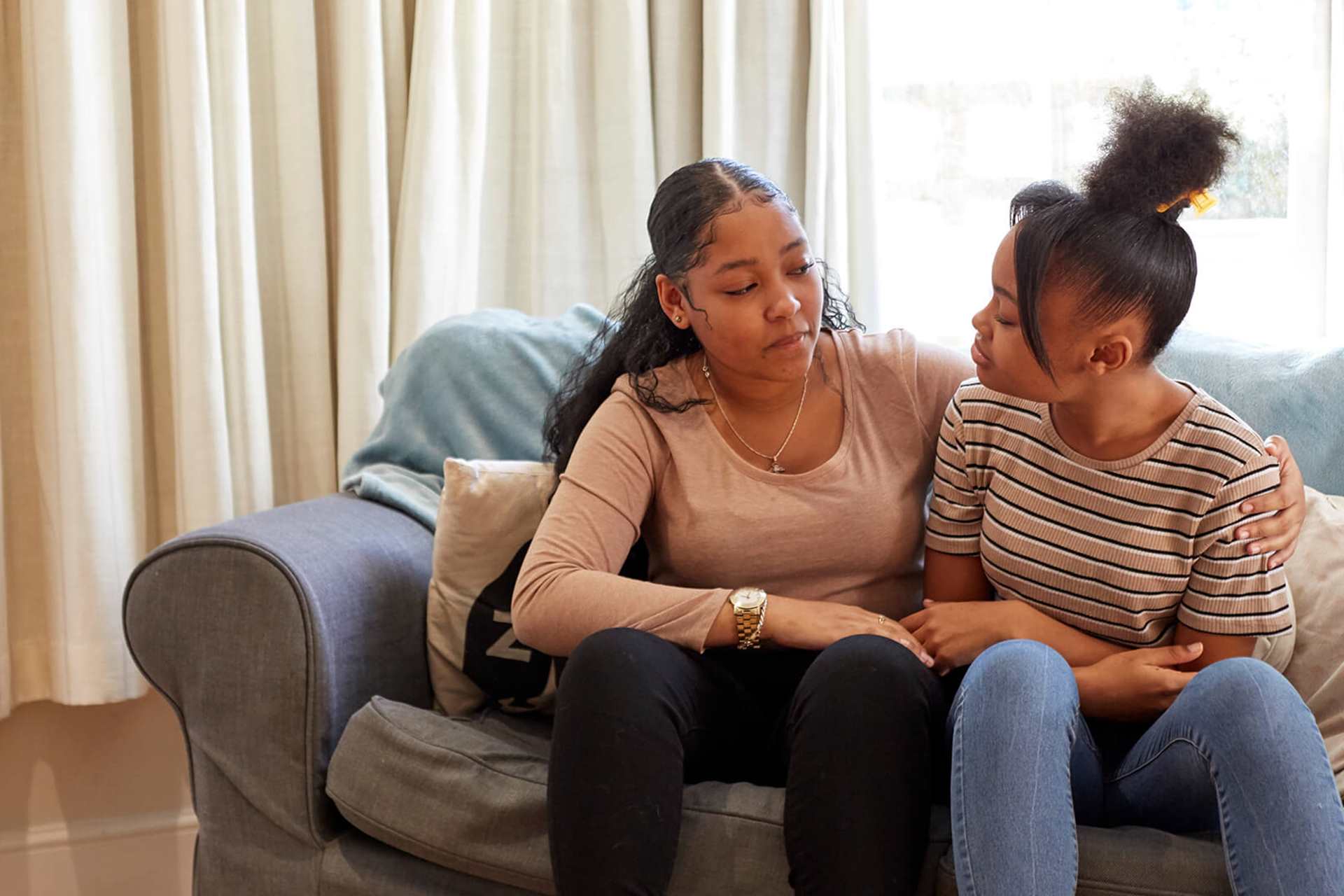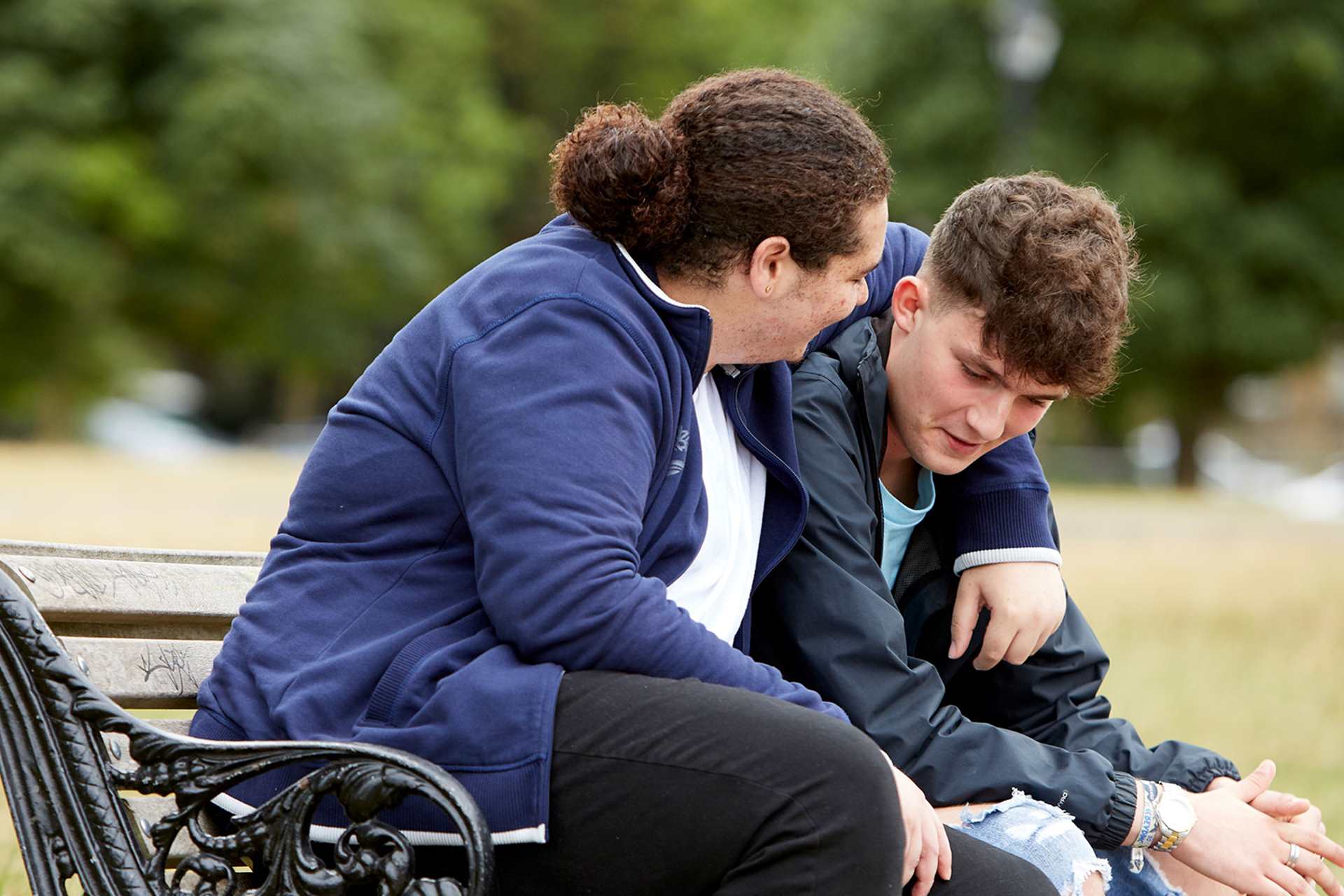Topics mentioned: problems at school, exam stress
About: Mary shares her tips on overcoming academic competitiveness, anxiety about grades, and learning to celebrate her own successes.
Since I was young, I have found myself comparing how I perform academically to others and measuring my success based on that. I admit, I’ve always done well, but I’ve always been extremely competitive, and struggled when a friend did better in a test or a piece of coursework. It started with spelling tests, and has continued to my final year of my law degree.
Particularly during exam season, grades can feel like the only measurement of worth. Yet, there are so many other things (even more important things!) which make you you.
The academic pressure I have forced upon myself has only heightened my anxiety. I found myself desperate to know how other people had done, to see whether I am in the same ball park, whether I’ve done better or worse than my peers.
This year, I have focused on trying to reduce my anxiety surrounding my grades, and I’ve found five things which helped me:
Always do your best
It’s a cliché, yet it has taken me years to believe this. I have finally accepted that when I have done my absolute best, revising as hard as possible, completing as many past papers as were available, I have done everything within my control to do the best I could.
How does this help me stop measuring myself against others? It doesn’t completely. However, it does mean that I know I could not have done anything more to achieve a higher grade. Another friend may have worked less and have achieved a higher grade, but after doing my absolute best, I could not have done anything more to achieve the same, however annoying that may be.
Something that does not come naturally to many of us is asking for help when we are struggling.
Ask your high-achieving friends for help
Something that does not come naturally to many of us is asking for help when we are struggling. Reading someone else’s essay or reading their marked test paper can give you a different perspective on the test, and open your mind to why the other person is scoring higher than you.
This can be extremely difficult, especially if you’re used to competing. However, by doing so, you are aiding your knowledge as to what examiners are looking for, which you can utilise in future.
Set realistic goals
No matter how much you revise, some of us have areas which we are more natural in than others. For example, in school, I would always do far better in English than in Maths, so I had a lot further to go in the latter. Setting identical goals would only lead to failure in one. Therefore, ensuring that you are aware of your current strengths allows you to set realistic ambitions that you are more likely to achieve.
Make sure to continue enjoying your hobbies, meet with family or friends, have conversations about anything other than academics, and take some time for yourself!
Remember that you are more than a grade
Particularly during exam season, grades can feel like the only measurement of worth. Yet, there are so many other things (even more important things!) which make you you. No matter how hard you are revising, or how many hours you are spending on a piece of coursework, make sure to continue enjoying your hobbies, meet with family or friends, have conversations about anything other than academics, and take some time for yourself!
Measure yourself only against your past self
Do not measure yourself against other people. The only person it is important to measure against is yourself. If you started at a 5, and have progressed to an 8 – brilliant! But in the same breath, any achievement is positive, and increasing from a low 5 to a higher 5 is just as amazing an achievement.
Distance yourself from the people who try to prove themselves against you, and get closer with those who support you and help you become a better you. When things don’t go to plan, use it as a lesson, not as a reason to punish yourself. Learn what went wrong and why, and seek help if you need.
Do not measure yourself against other people. The only person it is important to measure against is yourself.
Alternatively, you may not do as well as you hoped, or may even take a step backwards. Take this as a learning curve: find help and note down how to improve for next time. Don’t pin all of your self-worth to a number.
When the majority of our lives so far has been centred around exams and doing well in the classroom, competing with your friends is extremely common. Yet the future you are working towards is only yours. Friendly competition is unlikely to be damaging, but focussing on improving yourself so that you are happier, rather than trying to outdo others, is a much smarter route to success.
Focussing on improving yourself so that you are happier, rather than trying to outdo others, is a much smarter route to success.
More information and advice
We have tips and advice to help you find the support you need. Take a look at our guides.
Where to get help
However you're feeling, there are people who can help you if you are struggling. Here are some services that can support you.
-
Exam Results Helpline
Provides careers advice to help young people and their families decide on options following GCSE, A Level and Nationals results days.
Usually available through August. Opening days and hours may vary each year - check website for details.
If you live in Scotland, call 0808 100 8000.
-
Childline
If you’re under 19 you can confidentially call, chat online or email about any problem big or small.
Sign up for a free Childline locker (real name or email address not needed) to use their free 1-2-1 counsellor chat and email support service.
Can provide a BSL interpreter if you are deaf or hearing-impaired.
Hosts online message boards where you can share your experiences, have fun and get support from other young people in similar situations.
- Opening times:
- 24/7






